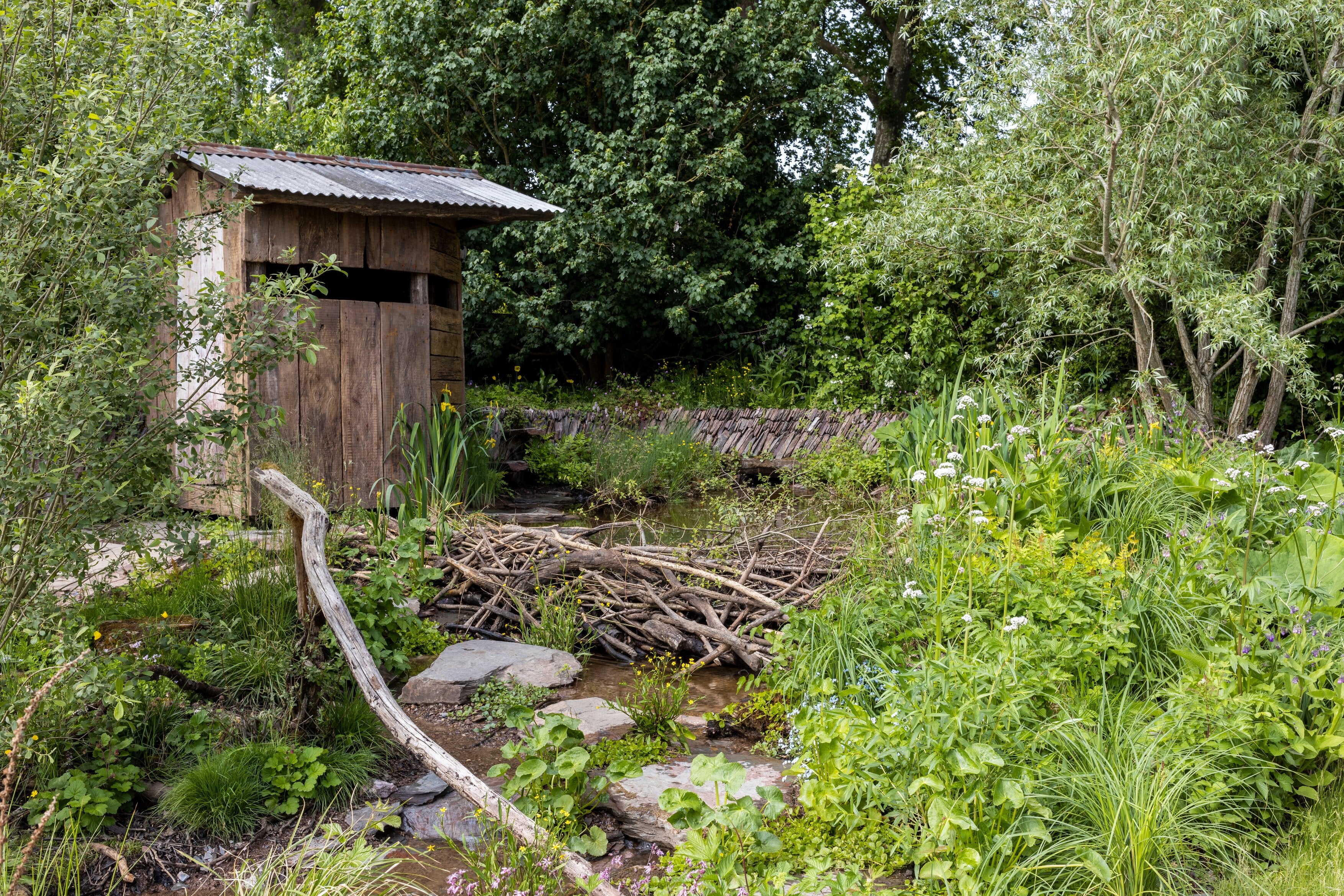Rewilding garden evoking beaver wetland wins top prize at Chelsea Flower Show
The creation by first-time Chelsea designers scooped the coveted Best in Show award at the Royal Horticultural Society event.

Your support helps us to tell the story
From reproductive rights to climate change to Big Tech, The Independent is on the ground when the story is developing. Whether it's investigating the financials of Elon Musk's pro-Trump PAC or producing our latest documentary, 'The A Word', which shines a light on the American women fighting for reproductive rights, we know how important it is to parse out the facts from the messaging.
At such a critical moment in US history, we need reporters on the ground. Your donation allows us to keep sending journalists to speak to both sides of the story.
The Independent is trusted by Americans across the entire political spectrum. And unlike many other quality news outlets, we choose not to lock Americans out of our reporting and analysis with paywalls. We believe quality journalism should be available to everyone, paid for by those who can afford it.
Your support makes all the difference.An “exquisite” rewilding garden that recreates beaver wetland habitat has won the Best in Show award at the Chelsea Flower Show.
The garden from first-time Chelsea designers Lulu Urquhart and Adam Hunt for the charity Rewilding Britain aims to evoke a rewilded landscape in the south-west of England that beavers have engineered.
The garden, which also won a Chelsea gold medal, features a beaver lodge, dam, a pond and stream and naturalistic planting including orchids, forget-me-nots and hawthorn, a wildlife-watching hide and a gravelly channel that fish would spawn in in the wild.
The Royal Horticultural Society’s (RHS) Chelsea Flower Show in London is back in its May slot for the first time since 2019, after being cancelled in 2020 and moved to September for 2021 due to the pandemic.
Other gold medal winners included a 13th medal for designer Sarah Eberle for the Medite Smartply Building the Future Garden, the Mind Garden, The Morris and Co Garden, the Meta Garden and a 14th Chelsea gold for Chris Beardshaw with the RNLI Garden.
Rewilding Britain’s garden was one of the exhibits supported by “Project Giving Back”, a scheme by two private individuals to allow charities to raise awareness of their work by bringing a fully-funded garden to the Chelsea Flower Show – subject to the usual RHS selection process.
Chairman of the judges James Alexander-Sinclair said: “It’s exciting to be back at the RHS Chelsea Flower Show in May, and while all of this year’s gardens are sensational, a few really stood out.
“It was a hard-fought debate between the members of the judging panel to decide which garden to award Best in Show.
“In the end, all the judges were captivated by the skill, endeavour and charm of A Rewilding Britain Landscape – every step is exquisite.”
Sara King, who leads on Rewilding Britain’s network supporting rewilding projects by farmers, landowners and charities across the country, said the garden aimed to replicate a beaver wetland environment.
And it showed how the animals created a mosaic of habitats for other wildlife bring by building dams, creating wetlands and felling and coppicing trees to open up woodland.
“Beaver wetlands are absolutely incredible, and to bring a slice of that here – not many people can visit them as they’re still quite isolated – for people to experience and hear the soundscape is really incredible.”
And she said: “We are also in an ecological emergency, so we need more diversity and beavers are incredible engineers – they create this diversity.
“They bring in opportunities for mammals, for invertebrates, for a whole range of wildlife. They really do, in a quite a short space of time, create so much diversity and nature recovery.
“Maybe some people might see this as slightly messy, but you can just see the sheer diversity here,” she said.
“If we can allow some wilder areas within our gardens or in our parks or within our countryside it really will help nature bounce back.”
Beavers were once found throughout Britain, but the species was hunted to extinction in the 16th century for their fur, glands and meat.
They are now found living in the wild on a number of rivers in Scotland and England through official trials and illegal releases or escapes, and have also been introduced into enclosures in a number of English counties.
Conservationists, who support the return of beavers because they boost wildlife, curb flooding and help water quality, are waiting for a Government decision on allowing applications to release the animals into the wild in England under certain criteria.